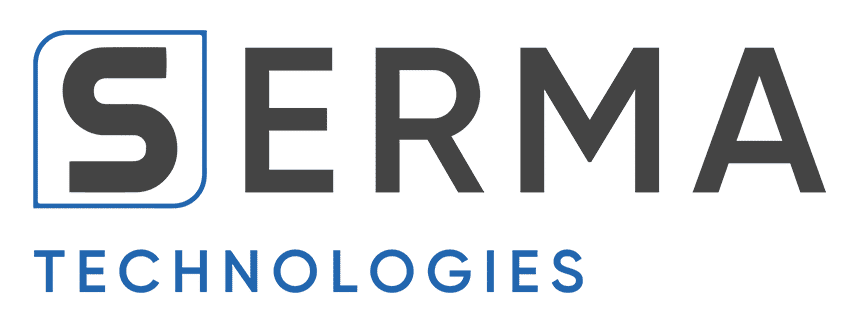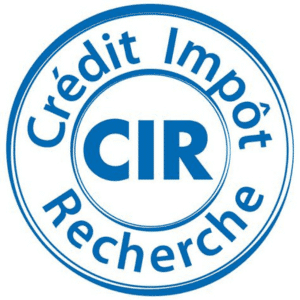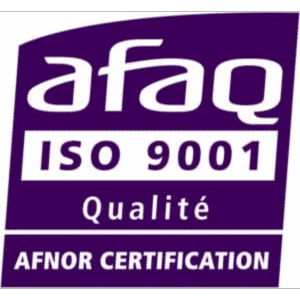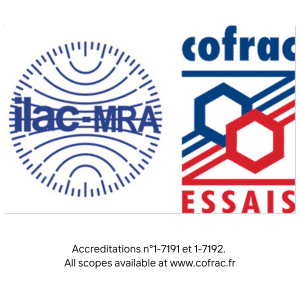Aeronautics
The aeronautics sector requires an ever-higher standard of quality and reliability for its embedded technologies.
SERMA Technologies provides its technological expertise in embedded electronic systems by ensuring the reliability of components and electronic systems.
Our expertise in assisting with problem-solving for components, circuit boards and electronic systems, in supporting design and industrialisation, and in managing and handling obsolescence has been recognised by the aeronautics sector for many years. We monitor manufacturing processes for components, circuit boards and materials used through verification programmes for PCBAs and PCBs, and site audits.

SERMA addresses the specific needs of the procurement chain for a component by performing each stage from design to supply of an ASIC, by performing assembly and a customised test, or by qualifying COTS plastic components.
We provide customised support for each sector stakeholder:
- Aircraft manufacturers
- Equipment manufacturers, subcontractors
- EMS
- Component manufacturers and suppliers
Component quality assurance
- DPA (Destructive Physical Analysis)
- Construction analysis
- Failure analysis
- Obsolescence management
- Second source qualification
- Counterfeit detection
- Batch repackaging for storage
- Component repackaging
- Storage
Electrical testing & component qualification
- Electrical test engineering
- Screening, upscreening
- Qualification of COTS (Components Off-The-Shelf) components
- Electronic components, printed circuit boards, electrical connectors, sensors, batteries, power, etc.
Materials & manufacturing processes
- PCB qualification and quality control
- Verification programme in accordance with IPC-A-610
- Analysis of soldering, microsectioning
- Analysis of Whisker risks
- EMS technical audits
- Support with improving manufacturing and integration processes for circuit boards
- ESD audits
- Commented design: technological choices, RoHS, DFT, DFR, DFM, etc
- Analysis of materials, pollution, etc.
Improving reliability
- Resolving quality issues, searching for root causes, failure analysis
- Support with drawing up design and production specifications
- Determining the mission profile
- Reliability and robustness improvement plan (HALT/HASS, etc.)
- Qualification plan
Obsolescence
- Analysis of components list
- Alert management (Obsolescence, RoHS, export licensing, etc.)
- Processing obsolescences, replacement solutions
- Qualification of alternative sources
- Upscreening
- Storage
- Cloning
- Redesigning circuit boards
Training
- Electronic component technologies
- Manufacturing processes: inspections, checks, audits, etc.
- Component quality assurance
- Controlling the component supply chain
- Component and system reliability
Qualification of electronic equipment
- Conducting electrical tests
- DO160 environmental testing
- Physical analysis (microsectioning, CSAM, whiskers, etc.)

Space
Space expeditions, in particular long-term satellite missions, require the highest quality and longest lifespan for their embedded technologies.
SERMA Technologies provides its technological expertise when supplying EEE components by conducting destructive physical analyses, qualifications of components and assembly processes, upscreening, relifing, etc.
We monitor the manufacturing processes for components and circuit boards as well as materials used through PCBA verification and PCB inspection programmes.
SERMA addresses the specific needs of the procurement chain for a component by performing each stage from design to supply of an ASIC, by performing assembly and a customised test, or by qualifying COTS plastic components.
SERMA is an ESA-recommended laboratory and provides customised support for each sector stakeholder:
- Space agencies and research laboratories
- Manufacturers of launch vehicles and satellites
- Equipment manufacturers, subcontractors
- EMS
- Component manufacturers
Batch quality control for EEE components
- DPA (Destructive Physical Analysis)
- Construction analysis
- Failure analysis
- Sample preparation (functional package opening)
- Counterfeit detection
- Batch repackaging for storage
- Storage
Electrical testing & component qualification
- Electrical test engineering
- Screening, upscreening, relifing
- Post-Programming Burn-In for FPGA components and other programmable components (PPBI)
- LAT (Lot Acceptance Testing)
- Qualification of COTS (Components Off-The-Shelf) components
- Radiation resistance testing
- Electronic components, printed circuit boards, electrical connectors, sensors, batteries, power electronics, circuit boards and electronic systems, etc.
Materials & manufacturing processes
- PCB incoming inspection
- Verification programme for circuit boards in accordance with ECSS-Q-ST-70-08/38
- Environmental testing, microsectioning
- MIP holding (Mandatory Inspection Point)
- Supplier audits
- Analysis of materials, pollution, etc.
Training
- Electronic component technologies
- Manufacturing processes: inspections, checks, audits
- Component quality assurance
ASIC supply
- Wafer probing
- Wafer cross-section
- Visual inspection of unassembled components
- Assembly of components
- Screening & LAT according to ESCC 9000 / 5000
Health care
The medical sector faces increasingly demanding quality, traceability and reliability requirements for its embedded technologies.
SERMA Technologies, which is recognised for its technological expertise in embedded electronic systems for ensuring the reliability of components and electronic systems, offers its skills in assisting with problem-solving for components, circuit boards and electronic systems, in supporting design and industrialisation and in managing and handling obsolescence.
We monitor the manufacturing processes for components, batteries and circuit boards as well as materials used, through stringent verification programmes.
SERMA addresses the specific needs of reliability, remaining lifespan, and dependability through methodological support and risk mitigation plans.

We provide customised support for each sector stakeholder:
- Manufacturers of implantable medical devices
- Manufacturers of measuring and testing equipment
- Subcontractors & EMS
- Component manufacturers and suppliers
Component quality assurance
- Construction analysis
- Failure analysis
- Obsolescence management
- Second source qualification
- Counterfeit detection
- Batch repackaging for storage
- Component repackaging
- Storage
Electrical testing and component & electronic system qualification
- Electrical test engineering
- Electronic component qualification
- Qualification of electronic equipment
- Physical analysis (microsectioning, CSAM, whiskers, etc.)
- Electronic components, printed circuit boards, electrical connectors, sensors, batteries, power electronics, circuit boards and electronic systems, etc.
Materials & manufacturing processes
- PCB qualification and quality control
- Verification programme in accordance with IPC-A-610
- Analysis of soldering, microsectioning
- Analysis of Whisker risks
- EMS technical audits
- Support with improving manufacturing and integration processes for circuit boards
- ESD audits
- Commented design: technological choices, RoHS, DFT, DFR, DFM, etc.
- Analysis of materials, pollution, etc.
Improving reliability
- Resolving quality issues, searching for root causes, failure analysis
- Support with drawing up design and production specifications
- Determining the mission profile
- Reliability and robustness improvement plan (HALT/HASS, etc.)
- Qualification plan
Qualification of electronic equipment
- Conducting electrical tests
- Environmental tests
- Physical analysis (microsectioning, CSAM, whiskers, etc.)
Obsolescence
- Analysis of components list
- Alert management (Obsolescence, RoHS, export licensing, etc.)
- Processing obsolescences, replacement solutions
- Qualification of alternative sources
- Upscreening
- Counterfeit detection
- Storage
- Cloning
- Redesigning circuit boards
Training
- Electronic component technologies
- Manufacturing processes: inspections, checks, audits, etc.
- Component quality assurance
- Controlling the component supply chain
- Component and system reliability

Energy
The energy sector, which is shifting towards renewable energy, is faced with the mass introduction of new electronic technologies and extremely high demands in terms of reliability and availability.
SERMA Technologies provides its technological expertise in embedded electronic systems by ensuring the reliability of components, electronic systems, energy storage systems, photovoltaics, etc.
We have recognised expertise in assisting with problem-solving for components, batteries, circuit boards and electronic systems, in supporting design and industrialisation, and in managing and handling obsolescence
(analysis of components list, second source qualification, etc.).
SERMA monitors the manufacturing processes for components, batteries, circuit boards and materials used, through verification programmes.
We address the specific needs of reliability, remaining lifespan, and dependability by building on methodological support and risk mitigation plans.
SERMA Technologies provides customised support for each sector stakeholder:
- Operators
- Equipment manufacturers
- Equipment manufacturers, subcontractors
- EMS
- Component manufacturers and suppliers
Quality assurance for component batches & batteries
- DPA (Destructive Physical Analysis)
- Construction analysis
- Failure analysis
- Obsolescence management
- Second source qualification
- Counterfeit detection
- Batch repackaging for storage
- Component repackaging
- Storage
Materials & manufacturing processes
- PCB qualification and quality control
- Verification programme in accordance with IPC-A-610
- Analysis of soldering, microsectioning
- Analysis of Whisker risks
- EMS technical audits
- Support with improving manufacturing and integration processes for circuit boards
- ESD audits
- Commented design: technological choices, RoHS, DFT, DFR, DFM, etc.
- Analysis of materials, pollution, etc.
Electrical testing & component qualification
- Electrical test engineering
- Screening, upscreening
- Qualification of COTS (Components Off-The-Shelf) components
- Electronic components, printed circuit boards, electrical connectors, sensors, batteries, photovoltaics, power
Improving reliability
- Resolving quality issues, searching for root causes, failure analysis
- Support with drawing up design and production specifications
- Determining the mission profile/li>
- Reliability and robustness improvement plan (HALT/HASS, etc.)
- Remaining lifespan
- Qualification plan
Qualification of electronic equipment & energy storage systems
- Conducting electrical tests
- Environmental tests
- Abuse testing on energy storage systems
- Physical analysis (microsectioning, CSAM, whiskers, etc.)
Obsolescence
- Analysis of components list
- Alert management (Obsolescence, RoHS, export licensing, etc.)
- Processing obsolescences, replacement solutions
- Qualification of alternative sources
- Upscreening
- Counterfeit detection
- Component storage
- Cloning
- Redesigning circuit boards
Training
- Electronic component technologies
- Manufacturing processes: inspections, checks, audits, etc.
- Component quality assurance
- Controlling the component supply chain
- Component and system reliability
Semiconductor
More than ever, the electronic components sector is the spearhead for technological innovation and evidence of its influence can be found in most systems.
SERMA Technologies provides solutions suited to all stakeholders of the semiconductor sector during the design, development, qualification, manufacturing and analysis of feedback from the field.

The services offered are aimed at all sector stakeholders:
- Wafer fabs, which we support in order to develop their manufacturing processes through analyses of reliability, failure, materials, etc.
- Integrated circuit designers, to whom we offer our expertise in terms of development, debugging, testing and qualification, and industrialisation
SERMA provides personalised support for each sector stakeholder:
- IDMs
- Fabless companies
- Wafer fabs
- Design houses
Component quality assurance
- DPA (Destructive Physical Analysis)
- Failure analysis
Electrical testing & component qualification
- Electrical test engineering
- Qualification of electronic components in accordance with MIL-STD, ESCC, AEC-Qxxx, IEC, JEDEC, etc.
- Climatic, mechanical, pressure, radiation, combined testing, etc.
- Burn-in
- Electrical failure analysis
- Passive, discrete, analogue, digital, mixed, electronic components, etc.
Development of components and processes
- Intellectual property
- Circuit Edit – FIB
- Design For Test (DFT)
- ESD protection strategy
- ESD testing, Latch-Up testing for electromigration, TLP, etc.
- Construction analysis: SEM, TEM, AFM, etc.
- Analysis of materials
Training
- Electronic component technologies
- Manufacturing processes: inspections, checks, audits
- Assembly of components
- Etc.

Automotive
SERMA Technologies is firmly committed to the challenges of the automotive industry through its solid knowledge of the sector and specific expertise for every link in the chain. From the integrated circuit designer to the OEM, we manage the technological risks, which is essential for the image of reliability that your customers expect.
Here are a few areas where we can provide you with technological and methodological added value:
- Smart vehicles: we assist OEMs and equipment manufacturers with pre-qualifying or qualifying future technologies, including microcontrollers, complete electronic systems, and sensors. In this universe where new stakeholders are emerging offering technological breakthroughs, we offer you our multisectoral experience
- Vehicle electrification: whether in relation to components (MOS, IGBT, cells etc.) or complete sub-assemblies (inverters, chargers, converters, batteries, etc.), we have the skills and expert resources to support your products towards maturity
SERMA will help you to understand changes in the mission profiles of your products, and their conversion into reliability requirements:
- ADAS function: the revolution of the future entails increased responsibilities for vehicle manufacturers and, as a result, the criticality of certain functions is raised even further. In this context, we will help you to reinforce your specifications and improve your management of supply chain-related risks
- Crisis resolution: in a constantly accelerating development cycle, responding quickly and effectively to quality crises helps to prevent financial sanctions and restore confidence. Our teams of experts are able to complement your 8D approach, through unique feedback on electronic failure mechanisms, and our ability to urgently put together teams dedicated to your issue (technical, process, reliability)
Component quality assurance
- PPAP analysis
- DPA (Destructive Physical Analysis)
- Construction analysis
- Failure analysis
- Obsolescence management
- Second source qualification
- Counterfeit detection
- Batch repackaging for storage
- Storage
Electrical testing and component qualification
- Electrical test engineering
- Qualification of electronic components in accordance with AEC-Qxxx
- Qualification of COTS (Components Off-The-Shelf) components
- Physical analysis (microsectioning, CSAM, whiskers, etc.)
- Electrical failure analysis
- Electronic components, printed circuit boards, electrical connectors, sensors, power electronics, etc.
Qualification of electronic equipment & energy storage systems
- Qualification of electronic equipment in accordance with OEM standards (B21, LV 124, etc.)
- Conducting electrical tests
- Environmental tests
- Abuse testing on energy storage systems
- Physical analysis (microsectioning, CSAM, whiskers, etc.)
Materials & manufacturing processes
- PCB qualification and quality control
- Verification programme in accordance with IPC-A-610
- Analysis of soldering, microsectioning
- Analysis of Whisker risks
- EMS technical audits
- Support with improving manufacturing and integration processes for circuit boards, batteries, cable harness sensors, etc.
- ESD audits
- Commented design: technological choices, RoHS, DFT, DFR, DFM, etc.
- Analysis of materials, pollution, etc.
Improving reliability
- Resolving quality issues, searching for root causes, failure analysis
- Support with drawing up design and production specifications
- Determining the mission profile
- Reliability and robustness improvement plan (HALT/HASS, etc.)
- Qualification plan
Rail
The rail sector requires a very high level of reliability, availability and life expectancy, while incorporating new embedded technologies.
SERMA provides its technological expertise in embedded electronic systems by ensuring the reliability of components and electronic systems.
SERMA Technologies monitors manufacturing processes for components and circuit boards as well as materials used through verification programmes for PCBAs and PCBs, and site audits worldwide.
We address the specific needs of the procurement chain for a component by performing each stage from design to supply of an ASIC, by performing assembly and a customised test, or by qualifying COTS plastic components.

SERMA provides personalised support for each sector stakeholder:
- Operators
- Manufacturers of rolling stock and ground support equipment
- Equipment manufacturers, subcontractors
- EMS
- Component manufacturers and suppliers
Component quality assurance
- DPA (Destructive Physical Analysis)
- Construction analysis
- Failure analysis
- Obsolescence management
- Second source qualification
- Counterfeit detection
- Batch repackaging for storage
- Component repackaging
- Storage
Electrical testing and component qualification
- Electrical test engineering
- Screening, upscreening
- Qualification of COTS (Components Off-The-Shelf) components
- Electronic components, printed circuit boards, electrical connectors, sensors, power electronics, etc.
Qualification of electronic equipment
- Conducting electrical tests
- Environmental tests
- Physical analysis (microsectioning, CSAM, whiskers, etc.)
Materials & manufacturing processes
- PCB qualification and quality control
- Verification programme in accordance with IPC-A-610
- Analysis of soldering, microsectioning
- Analysis of Whisker risks
- EMS technical audits
- Support with improving manufacturing and integration processes for circuit boards, batteries, cable harness sensors, etc.
- ESD audits
- Commented design: technological choices, RoHS, DFT, DFR, DFM, etc.
- Analysis of materials, pollution, etc.
Improving reliability
- Resolving quality issues, searching for root causes, failure analysis
- Support with drawing up design and production specifications
- Determining the mission profile
- Reliability and robustness improvement plan (HALT/HASS, etc.)
- Qualification plan
Obsolescence
- Analysis of components list
- Alert management (Obsolescence, RoHS, export licensing, etc.)
- Processing obsolescences, replacement solutions
- Qualification of alternative sources
- Upscreening
- Counterfeit detection
- Storage
- Cloning
- Redesigning circuit boards
Training
- Electronic component technologies
- Manufacturing processes: inspections, checks, audits
- Component quality assurance
- Controlling the component supply chain
- Component and system reliability
- Etc.

Other industries
Many systems are now enhanced with electronic functions. Designers are faced with the constant introduction of new technologies and have to deal with issues such as how to protect their inventions and adapt to a very short time to market, in markets that are extremely diverse: IoT, Telecommunications, Legal experts, etc.
They can rely on SERMA’s expertise in choosing new technologies and their suitability for the mission profile in order to market a safe and reliable product.
SERMA Technologies offers its expertise in assisting with problem-solving for components, batteries, circuit boards and electronic systems, in supporting design and industrialisation, and in managing and handling obsolescence
(analysis of components list, second source qualification, etc.). We also offer support in the framework of legal investigations further to damage or to ensure that a technology has not been copied.
SERMA Technologies monitors the manufacturing processes for components, batteries and circuit boards as well as materials used, through verification programmes and audits.
SERMA Technologies addresses the specific needs of reliability and dependability through methodological support and risk mitigation plans.
SERMA Technologies provides customised support for each sector stakeholder:
- Equipment manufacturers
- Equipment manufacturers, subcontractors
- EMS
- Component manufacturers and suppliers
- Legal experts
Component quality assurance
- DPA (Destructive Physical Analysis)
- Construction analysis
- Failure analysis
- Obsolescence management
- Second source qualification
- Counterfeit detection
- Batch repackaging for storage
- Component repackaging
- Storage
Electrical testing and component qualification
- Electrical test engineering
- Screening, upscreening
- Qualification of COTS (Components Off-The-Shelf) components
- Electronic components, printed circuit boards, electrical connectors, sensors, power electronics, etc.
Qualification of electronic equipment & energy storage systems
- Conducting electrical tests
- Environmental tests
- Abuse testing on energy storage systems
- Physical analysis (microsectioning, CSAM, whiskers, etc.)
Materials & manufacturing processes
- PCB qualification and quality control
- Verification programme in accordance with IPC-A-610
- Analysis of soldering, microsectioning
- Analysis of Whisker risks
- EMS technical audits
- Support with improving manufacturing and integration processes for circuit boards, etc.
- ESD audits
- Commented design: technological choices, RoHS, DFT, DFR, DFM, etc.
- Analysis of materials, pollution, etc.
Improving reliability
- RResolving quality issues, searching for root causes, failure analysis
- Support with drawing up design and production specifications
- Determining the mission profile
- Reliability and robustness improvement plan (HALT/HASS, etc.)
- Qualification plan
Resolving quality & reliability problems
- Analysis and identification of the root causes of recurring malfunctions and random failures
- Proposal and implementation of remedial actions
Obsolescence
- Analysis of components list
- Alert management (Obsolescence, RoHS, export licensing, etc.)
- Processing obsolescences, replacement solutions
- Qualification of alternative sources
- Upscreening
- Counterfeit detection
- Storage
- Cloning
- Redesigning circuit boards




